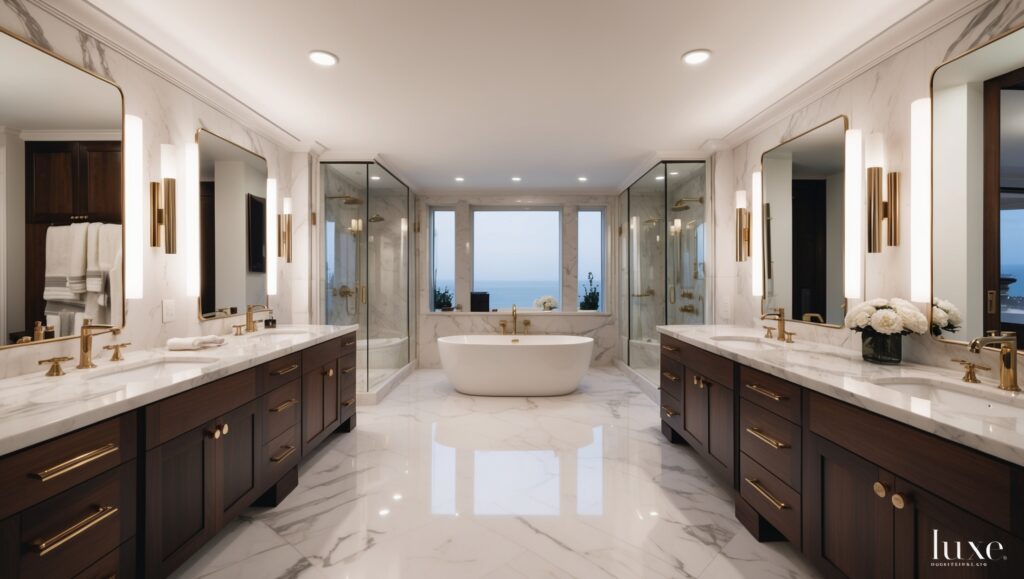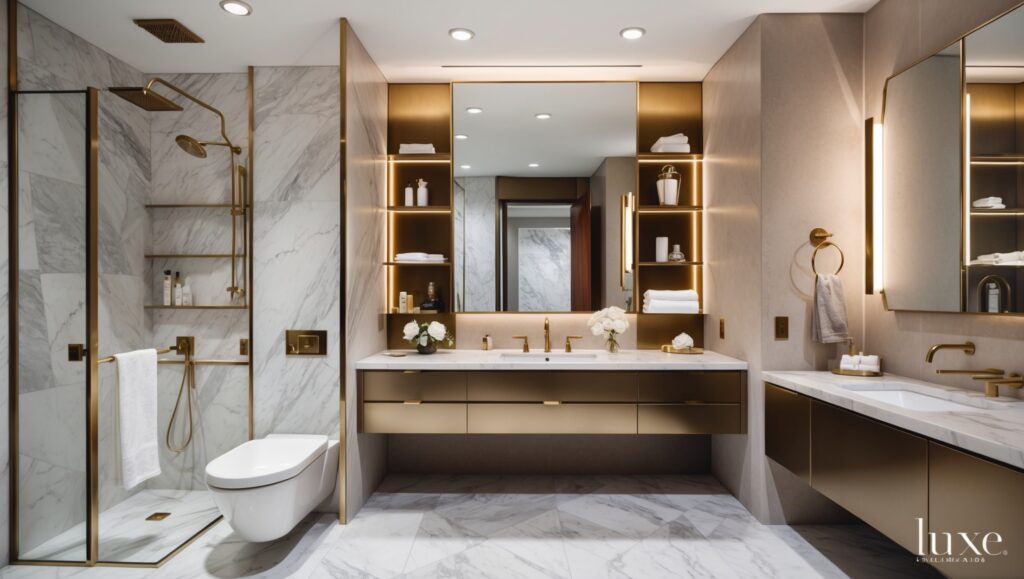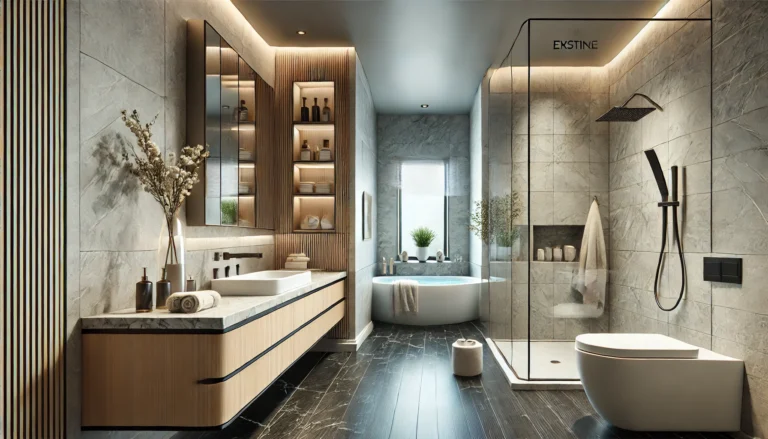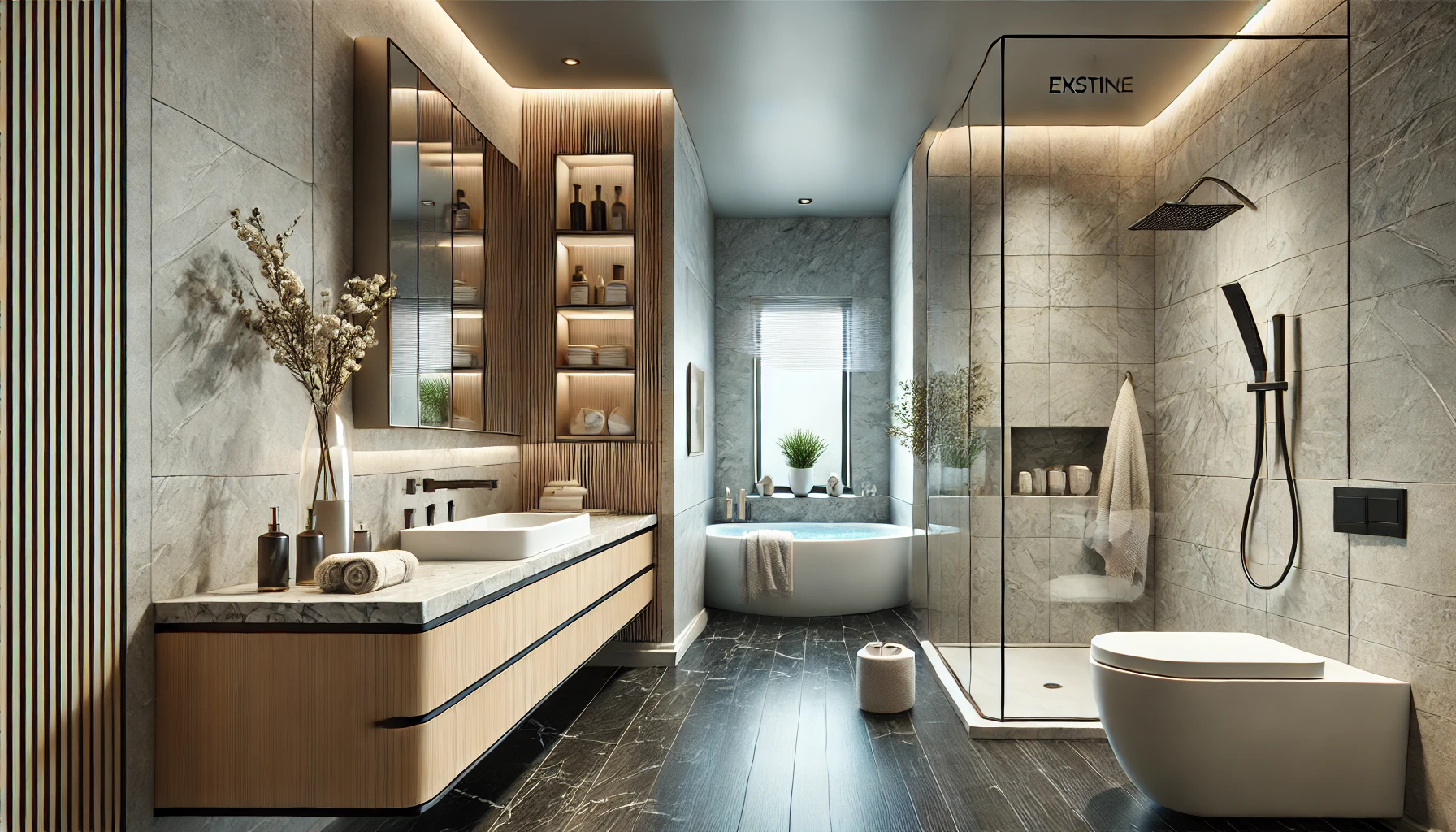When embarking on a luxury bathroom remodel, the goal isn’t always to start from scratch. Instead, it’s about elevating an existing space with creativity and precision. Whether you’re dealing with outdated materials, a less-than-ideal layout, or simply need more functionality, the key is to transform your bathroom into a luxurious retreat that reflects your personal style and meets your daily needs.
Here’s a comprehensive guide to navigating the art of a luxury bathroom remodel, from setting the stage to working with professionals to achieve your dream space.
1. Setting the Stage for Your Luxury Bathroom Remodel
Before diving into design options or creating Pinterest boards, take a moment to reflect on the purpose of your remodel. Understanding your goals is crucial for a successful renovation. Here’s what to consider:

Define Your Objectives
Start by asking yourself what you hope to achieve with your remodel. Do you need more storage space? Are the materials in your bathroom outdated? Is the current layout inefficient? Identifying your core objectives will help guide your decisions throughout the process. For instance:
- Storage Needs: If you find yourself lacking storage, consider integrating built-in cabinets or a custom vanity.
- Material Upgrades: Outdated materials can be replaced with modern alternatives like marble or quartz.
- Layout Issues: An inefficient layout might be improved with better space planning or by moving fixtures around.
Understand Project Parameters
Determine the scope of your renovation. Are you planning a full remodel or a partial update? Knowing what can and cannot be altered in your space is essential. Consider:
- Structural Constraints: Are there any structural elements that cannot be changed, such as load-bearing walls or plumbing?
- Layout Limitations: Assess the existing layout and decide what can be modified to better suit your needs.
Budget Considerations
Budget is a significant factor in any remodel. Prioritize where to invest the most and where you can economize. For instance:
- High-Impact Areas: Invest in high-quality materials for features like countertops and flooring.
- Cost-Saving Options: Save on less visible elements like storage hardware or fixtures.
2. Planning Around Your Existing Space
To optimize your bathroom’s functionality and aesthetics, start by evaluating how you currently use the space. This involves:

Assess Daily Usage
Think about how you interact with your bathroom on a daily basis. What aspects of the current layout and design work well, and what doesn’t? For example:
- Current Layout: Does the layout support your daily routine, or is it cumbersome?
- Functional Needs: Are there any specific features you need, such as a double sink or a walk-in shower?
Explore Design Possibilities
With your objectives and constraints in mind, explore design solutions that enhance usability and align with your vision. Consider:
- Space Optimization: Look for ways to make the most of your space, such as adding built-in shelves or opting for a floating vanity.
- Design Enhancements: Think about incorporating features like heated floors, a rainfall showerhead, or custom lighting.
3. Gain Aesthetic Inspiration
Creating a cohesive and aesthetically pleasing space is vital in a luxury bathroom remodel. Here’s how to gather and align aesthetic inspiration:
Utilize Online Platforms
Platforms like Pinterest and Instagram are invaluable for visual inspiration. Create boards to collect images that resonate with your vision. Focus on:
- Design Styles: Whether you prefer a minimalist, spa-like, or coastal theme, gather images that reflect these styles.
- Color Palettes: Choose a color palette that complements your desired aesthetic and enhances the overall mood of the space.
Visualize Your Ideal Bathroom
Envision yourself in your newly remodeled bathroom. What kind of atmosphere do you want to create? Consider:
- Clutter-Free Minimalism: For a clean and sleek look.
- Artistic Showcase: If you wish to display artwork or unique decor.
- Spa-Like Environment: For a relaxing, luxurious experience.
4. Explore Design Solutions
Once you’ve established your objectives, constraints, and aesthetic vision, it’s time to delve into design solutions. Consider the following approaches:
Modular Design
Opt for modular solutions that allow you to tailor the space to your needs. This might include:
- Custom Vanities: Choose modular vanities that can be scaled up or down based on your storage needs.
- Flexible Storage: Incorporate adjustable shelving and cabinetry to accommodate changing needs.
Material Selection
Select materials that align with your design theme and offer durability. For instance:
- Countertops: Marble, granite, or quartz can provide both luxury and functionality.
- Flooring: High-quality tiles or natural stone can enhance the room’s elegance.
Color Palette
Choose a cohesive color palette that ties all elements together. A well-chosen palette can create a harmonious and visually pleasing environment. Consider:
- Neutral Tones: For a timeless and sophisticated look.
- Bold Accents: If you prefer to add pops of color or unique design elements.
5. Collaborate with Professionals
Working with a professional designer or architect can significantly enhance the remodeling process. Here’s how they can help:
Expert Guidance
A professional can provide valuable insights and suggest ideas you might not have considered. They can:
- Design Expertise: Offer innovative design solutions and help you navigate complex decisions.
- Project Management: Ensure that the project stays on track and meets your objectives.
Collaborative Approach
The Hastings team is dedicated to working collaboratively with both you and your designer to bring your vision to life. Through a coordinated effort, you can:
- Unlock Creativity: Explore new design possibilities and creative solutions.
- Achieve Your Vision: Ensure that your luxury bathroom remodel aligns perfectly with your goals.




1 thought on “The Art of Luxury Bathroom Remodeling”